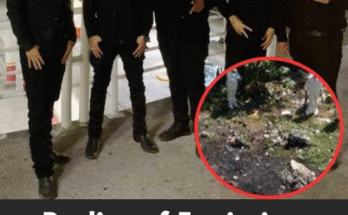An Overlooked Piece of History: The Heroism of the 6888th Central Postal Directory Battalion
History is often shaped by the stories we choose to remember — and the ones we overlook. One such overlooked chapter is the remarkable story of the 6888th Central Postal Directory Battalion, the only all-Black, all-female battalion to serve overseas during World War II. Their mission wasn’t to storm beaches or fly planes, but to battle a different kind of chaos: a mail backlog that was threatening the morale of hundreds of thousands of American soldiers.
Nicknamed the “Six Triple Eight,” the battalion was composed of over 800 African American women from various backgrounds — teachers, clerks, nurses, and students — who answered the call to serve their country, even when that country often refused to acknowledge their full citizenship. Facing both racial segregation and gender discrimination, these women set out in 1945 to Europe to perform a task many deemed impossible.
When the 6888th arrived in Birmingham, England, they were greeted by warehouses stacked to the ceiling with undelivered mail — nearly 17 million pieces, some more than two years old. Letters and packages meant to bring comfort and connection to lonely soldiers were buried in confusion. Undelivered mail meant lower morale and soldiers distracted by the feeling of being forgotten.
The women of the 6888th worked around the clock in three shifts, seven days a week. They created a system to sort mail efficiently, even with the challenge of duplicate names, nicknames, and poor handwriting. Their motto, “No Mail, Low Morale,” became a rallying cry. In just three months, they cleared what was expected to take six, then moved on to do the same in Rouen and Paris, France.
Their work was unseen by the public, uncelebrated by the military brass, and largely forgotten by the history books — until recent years. Despite serving with distinction, the women of the 6888th received no public recognition, medals, or honors at the time. It wasn’t until 2022 that Congress awarded them the Congressional Gold Medal, one of the highest civilian honors in the United States, finally recognizing their essential role in the war effort.
Their story is more than just a tale of logistical brilliance — it’s one of courage, discipline, and resilience. The 6888th not only proved themselves vital to the war effort but also shattered stereotypes about race and gender in the military. They were pioneers, paving the way for future generations of women and minority soldiers.
In a world that often remembers generals and battles, it’s essential we also remember those who worked behind the scenes, changing lives without ever firing a weapon. The legacy of the 6888th reminds us that history isn’t just about who leads, but also about who serves — and that sometimes, delivering a letter can be just as heroic as winning a battle.
